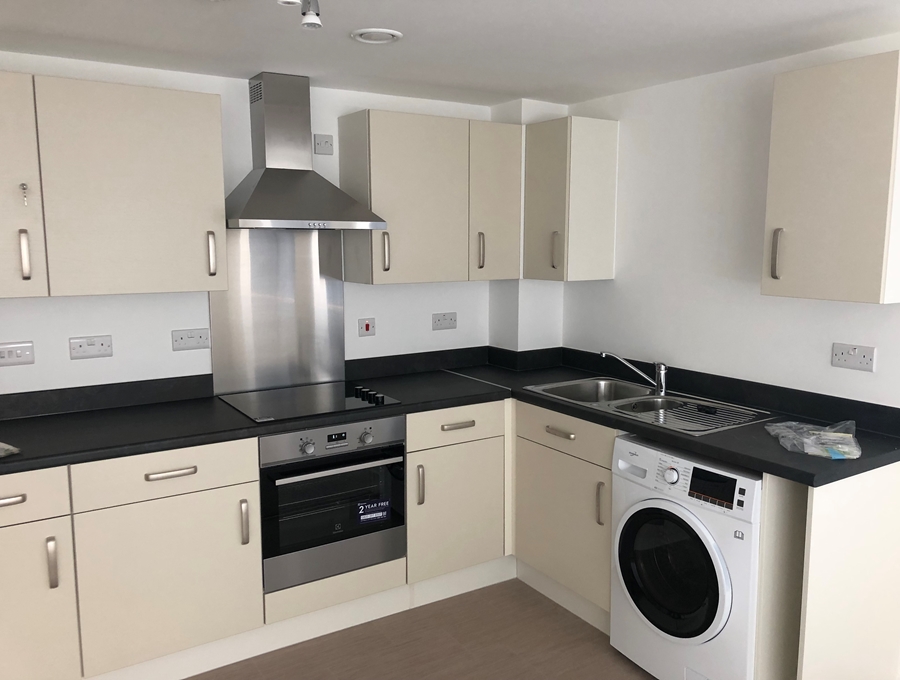This blog post offers helpful information for housing association tenants regarding the typical timing for kitchen replacements. Credit: Midland Heart Housing associations generally replace kitchens every 15-20 years. The process of replacing a kitchen usually takes around 2 weeks and can be disruptive. During the 2021-22 period, we spent £111.5m on improving homes, communal areas, and residential blocks, which included installing new kitchens and bathrooms. There is no specific legal requirement for kitchen replacement based on age alone. However, experts typically recommend upgrading kitchens that are older than 15 years. The bathroom, on the other hand, does not require an upgrade at this time, as housing associations generally replace bathrooms every 30 years. Additionally, people typically replace boilers every 15-20 years, and windows may also undergo periodic replacement. If any damage occurs to your property during council works, the council is responsible for repairing it. You can negotiate a reduction in rent if maintenance or building work affects your property. As a council or housing association tenant, it is important to understand your responsibilities and the repairs and safety checks that your landlord must carry out. The process of replacing a kitchen usually takes around 2 weeks and can be disruptive. Mutual exchanges with other tenants may be an option if you need to move during major works. There are a few key rules that housing associations follow when it comes to replacing kitchens in their properties: While kitchen upgrades generally occur every 15-20 years, tenants can request an early replacement if the current kitchen is unsuitable. Housing associations have procedures in place to evaluate these requests and oversee the installation process. Maintaining open communication with your housing officer is key for a smooth kitchen replacement. Credit: Jones Building Group When it comes to the timeline for a typical kitchen replacement by a housing association, there are a few key phases to expect: While timeframes vary, most housing association kitchen replacements take 4-6 weeks from start to finish. Maintaining clear communication throughout the process is important to keep the project on track and address any tenant concerns promptly. To qualify for a new kitchen provided by your housing association, there are a few key criteria to meet: A housing officer will inspect your current kitchen and assess it against these criteria. Be sure to point out any concerning flaws like faulty appliances, poor lighting or lack of storage during their visit. Maintenance requests you’ve submitted related to your kitchen will also be reviewed. If your kitchen is considered outdated or unsuitable, the housing association will approve a replacement and help you choose the new design. This opens the door to a more functional, safe and modern kitchen. Once approved for a new kitchen, here’s an overview of what typically happens next: With proper coordination, the process typically takes 2-4 weeks from approval to completion. Communication with your housing officer at each step ensures a smooth kitchen upgrade. Housing associations typically replace kitchens every 15-20 years as part of their planned maintenance program. This ensures kitchens remain functional and up-to-date for residents. Yes, housing association residents can request a new kitchen installation or replacement. The housing association will assess the condition of the existing kitchen and determine if a replacement is necessary based on age, damage or disrepair. Landlords should consider replacing a rental property kitchen if it is over 15 years old, damaged, or no longer functions properly. Kitchen replacements may also become necessary for safety reasons or to bring the property up to modern standards. Housing associations typically replace windows every 30-40 years. We may replace windows sooner if they become faulty, damaged, or energy-inefficient. Some housing associations have ongoing window replacement programs. Housing associations generally replace kitchens after approximately 15 years as part of planned maintenance cycles. When deciding when replacement is warranted, we consider factors such as the age and condition of the existing kitchen, as well as resident requests. Kitchen upgrades aim to keep properties functional and up-to-date for residents. Overall, regular kitchen replacements are typical practice for housing associations.
When Do Housing Associations Replace Kitchens?

Housing Association Rules for Kitchen Replacements
Timeline for Kitchen Replacement

Qualifying for a New Kitchen From a Housing Association
Process of Getting Your Kitchen Upgraded
FAQ
How often should a kitchen be replaced in a housing association property?
Can you put a new kitchen in a housing association house?
When should a landlord replace a kitchen?
How often do housing associations replace windows?
Conclusion
Kitchen upgrades can greatly improve the quality of life in council or housing association homes.
Tenants can request a new kitchen if the current one is damaged, not functioning properly, or does not meet their needs.
